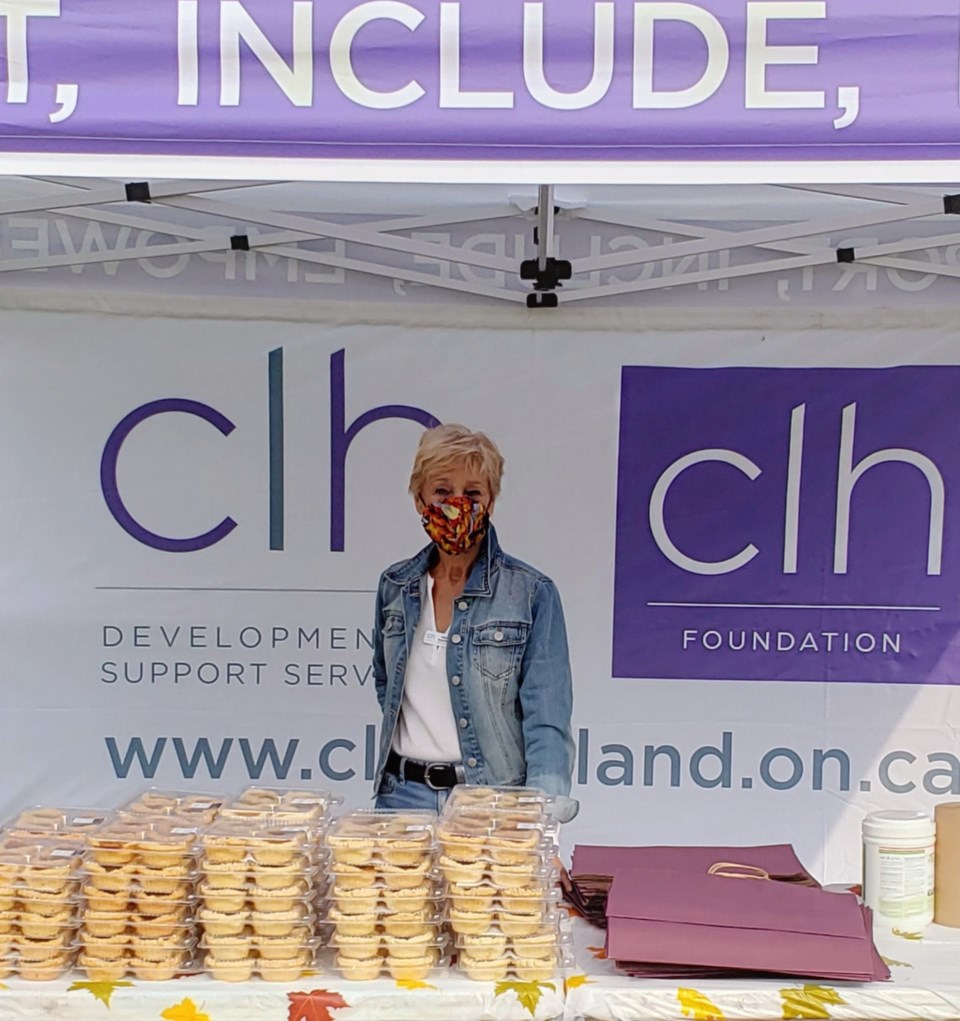Wendy McKinnon says her daughter is her humanitarian.
McKinnon’s daughter is a developmental support worker, who McKinnon says is the reason she started volunteering at CLH Developmental Support Services (CLH) over three years ago.
CLH provides developmental support services to 200 adults and 1,800 children, youth and families. The non-profit was founded in 1960 and aims to foster acceptance, encouragement, and life-long learning for those with developmental support needs.
“It’s about improving the quality of somebody’s life,” says McKinnon about her work volunteering with CLH.
McKinnon says that volunteering with CLH requires commitment to supporting marginalized individuals.
“You have to have compassion, and treat people with dignity, and respect,”says the lifelong volunteer who has volunteered with various organizations for more than 25 years.
“I do it because I honestly believe that we should all give back to society. That’s my personal moral value,”
One of the ways CLH supports people with developmental support needs is through a program called Supported Independent Living.
Recently, the program collected and purchased items for care packages that included cleaning supplies, paper towels, toilet paper, hand soap, personal hygiene supplies, hats, mitts and socks. Those packages were delivered to 33 individuals in the community.
“It’s so heartwarming to support an event with your time and see how much delight you are putting in their lives,” says McKinnon.
McKinnon started off on the fundraising committee volunteering her time at events like golf tournaments and the Butter Tart Festival, which typically attracts more than 60,000 people to the area every summer. Butter tart sales raise a lot of funds for the organization.
With the Butter Tart Festival on hold due to COVID-19, McKinnon says they partnered with Windlee Farms this summer to sell butter tarts there, and it was quite successful.
“It’s been a tough couple of years,” says McKinnon.
With the constraints of the pandemic, people with developmental support needs are more vulnerable due to greater healthcare needs, dependency on community-based services and mental health concerns.
People with developmental support needs have difficulty in advocating for themselves and rely on others to keep them safe from infection, and require high levels of support from family members or paid caregivers.
Due to a need for increased levels of social contact, they are more exposed in a pandemic than other groups putting them at greater risk.
Aside from higher risk of exposure during a pandemic, according to CLH, “as the people [CLH] support[s] age, their support needs continue to become more medically complex with no increased funding. This population is growing rapidly and represents approximately 40 per cent of those receiving supported living home services [from CLH].”
“Unfortunately, the government seems to underfund our marginalized individuals,” says McKinnon. “I find it appalling that they can turn a blind eye to individuals that need medications, medical supplies, warm clothing, and food and live on limited incomes.”
McKinnon works on the Foundation for Success Committee, and receives applications from individuals in the community in need of additional supports.
“I really see how these people struggle. It breaks my heart,” says McKinnon. “It’s about quality of life, and we take that for granted.”
One of the best times for the community at CLH to come together is the Christmas Party, in McKinnon’s opinion.
“That is just a phenomenal event. They all get dolled up, they get their hair done, and they’re in suits.”
Christmas celebrations, and fundraising events alike have been affected by the pandemic as well, and the hope is that all events and social programming can return to pre-COVID levels in the near future.
Last year, CLH transitioned their yearly gala to a virtual event, and raised more than $90,000 — a significant increase from past years.
The team behind the gala at CLH did not know what to expect in moving from an in-person event to a virtual one.
“But we had wonderful participation from online guests, business sponsors, auction donors and an amazing band: really, all the best parts of a ‘real’ gala,” says Sue-Ellen Boyes, CLH’s revenue development director.
Next year’s gala will be held February 19, 2022, and CLH hopes for the same level of community participation.
The volunteer program, meanwhile, is currently on hold, but CLH looks forward to re-activating it post-pandemic.
“Volunteering doesn’t take a lot of time, and it does not have to be a monetary contribution,” says McKinnon. “Give a little of your time, and change someone’s life.
“You have to have a big heart to work towards improving the quality of somebody’s life.”
For more information about CLH Developmental Support Services or to inquire about becoming a volunteer in the future visit their website.

